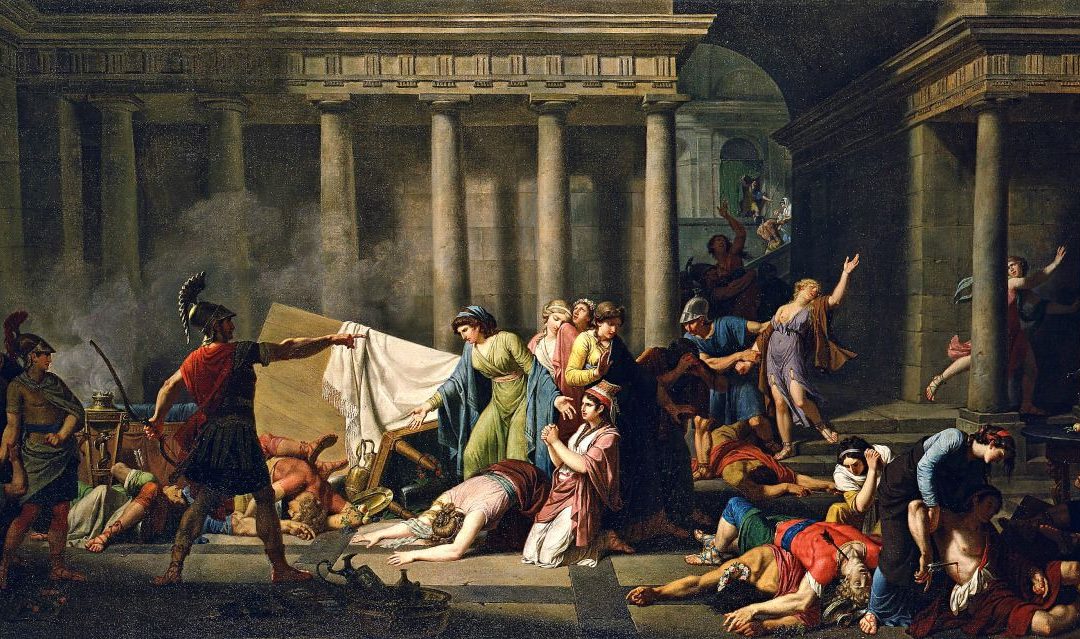Franciscus Junius
Junius on a Twofold State of Man
Franciscus Junius construes the state of man in a twofold manner when he writes that there are “two states of men, namely, the state of integrity when he was created by God and the state of corruption arising from man’s fall by his own choice.”[1] Further, Junius conceives of natural theology as “that which proceeds from principles that are known in relations to itself by the natural light of the human understanding.”[2] And, “The conception of this natural theology in the human understanding deals with things that are common, and it is both veiled and imperfect.” Like both Bullinger and Calvin, Junius maintains a “common knowledge” of God amongst all men. As it existed apart from corruption, Junius conceived of this theology as that which Adam possessed apart from sin. After sin, however, it “was corrupted,” even though it “yet remained in individuals.” Alluding to the corruption of this natural theology in the creature, he says, “they were completely compromised in themselves and quite confused among themselves, as though mere broken fragments of our nature, because of our depravity.” The principles of natural theology, albeit remaining, are perverted by our corrupt sin nature. He goes on:
So from this statement we establish that supernatural theology, which by the sin of man had been, as it were, rejected and most undeservedly spurned, retreated from here to the heavens; and natural theology, as all other things which arise from nature, was corrupted. For how could it have remained uncorrupted in a subject that was corrupted in every part?
Junius, therefore, understands natural theology in a twofold state, in pre-fall and post-fall mankind. Prior to Adam’s fall, natural theology was uninhibited by sin, and though it didn’t constitute all of Adam’s theology, the condescension of God being added to it, i.e. supernatural theology, and though Adam could have added to it, it was yet able to be performed apart from a corrupt nature. After the fall, however, man’s sin nature would corrupt such a theology and “so this theology,” says Junius, “can lead nothing at all to perfection, nor does it ever do so.” That is, natural theology was never intended to lead to perfection. “And it is not even able, in and of itself, to contain the perfection that is added by grace.”
A Nature/Grace Contrast
At this point, Junius contrasts nature with grace which corresponds to a sister distinction, that between the covenant of works and the covenant of grace. By “grace,” Junius of course does not mean any and all kinds of grace without exception. There is, to be sure, common grace associated with common or natural revelation, perceived through natural theology. Junius, rather, means “grace” in the special, uncommon or supernatural sense—that grace which comes through the gospel, or the covenant of grace, alone. Digging a deeper trench between natural and supernatural theology, he writes:
Nature does not draw out a disposition except from a preexisting matter, but the Spirit of God works all things in all. And so with regard to natural theology, nature both applies understanding and takes the seeds of the principles for its disposition. But with regard to supernatural theology, the Spirit of God claims all the parts for itself entirely, so that it is with all justice called supernatural.
The observation that natural theology comes naturally and supernatural theology comes supernaturally is further highlighted when considering the nature of the covenant of grace seen in places like Jeremiah 31:31-34 and Hebrews 8:7-12. Implied in Junius’ view of natural/supernatural theology is the federal connection, at the very least in terms of the covenant of grace where man’s understanding is lifted not only beyond nature but beyond his postlapsarian, inborn corruption, i.e. “I will put My laws in their mind and write them on their hearts; and I will be their God, and they shall be My people (Heb. 8:10).”
Junius on Grace-Theology
Junius further identifies the terms “inspired theology” and “supernatural theology,” and they become necessary for man’s redemption after the fall, assuming, of course, a natural theology corresponded to the prelapsarian covenant of works in a unique, sin-free way, “Consequently, it was necessary that inspired theology come to man’s aid. We call this theology supernatural because of its origin, and a theology of revelation from its gracious mode of communication.” Natural theology and supernatural theology are therefore roughly distinguished along covenantal lines implicitly in Junius’ work. They are not distinguished in terms of mutual exclusivity, as if natural theology existed under the prolapse covenant of works only. Rather, they are distinguished qualitatively: natural theology existed apart from sin and was useful to man prior to the fall. After the fall, it remains but is subject to corruption, only to be restored under the covenant of grace—wherein God begins restoration to a punctuated Adamic state through Christ by renewing his mind and regenerating his heart (Rom. 5:15; 8:22ff).
Conclusion
Junius, therefore, represents a rather large step in the development of language reflecting the relationship between natural theology and covenant. Not only does he employ a twofold state of man distinguished along covenant lines, corresponding to which is knowledge, but he also relates the ancient nature/grace distinction to the covenants of works and grace, a distinction Francis Turretin will continue to make. Junius also clearly distinguishes between the species of revelation proper to either covenant by making “inspired theology” a distinctive of the covenant of grace.
Resources
[1] Franciscus Junius, “Theses Theologicae” in Opuscula Selecta, ed. by Abraham Kuyper, 183.
[2] Franciscus Junius, A Treatise on True Theology, (Grand Rapids: Reformation Heritage Books, 2014), 145.

